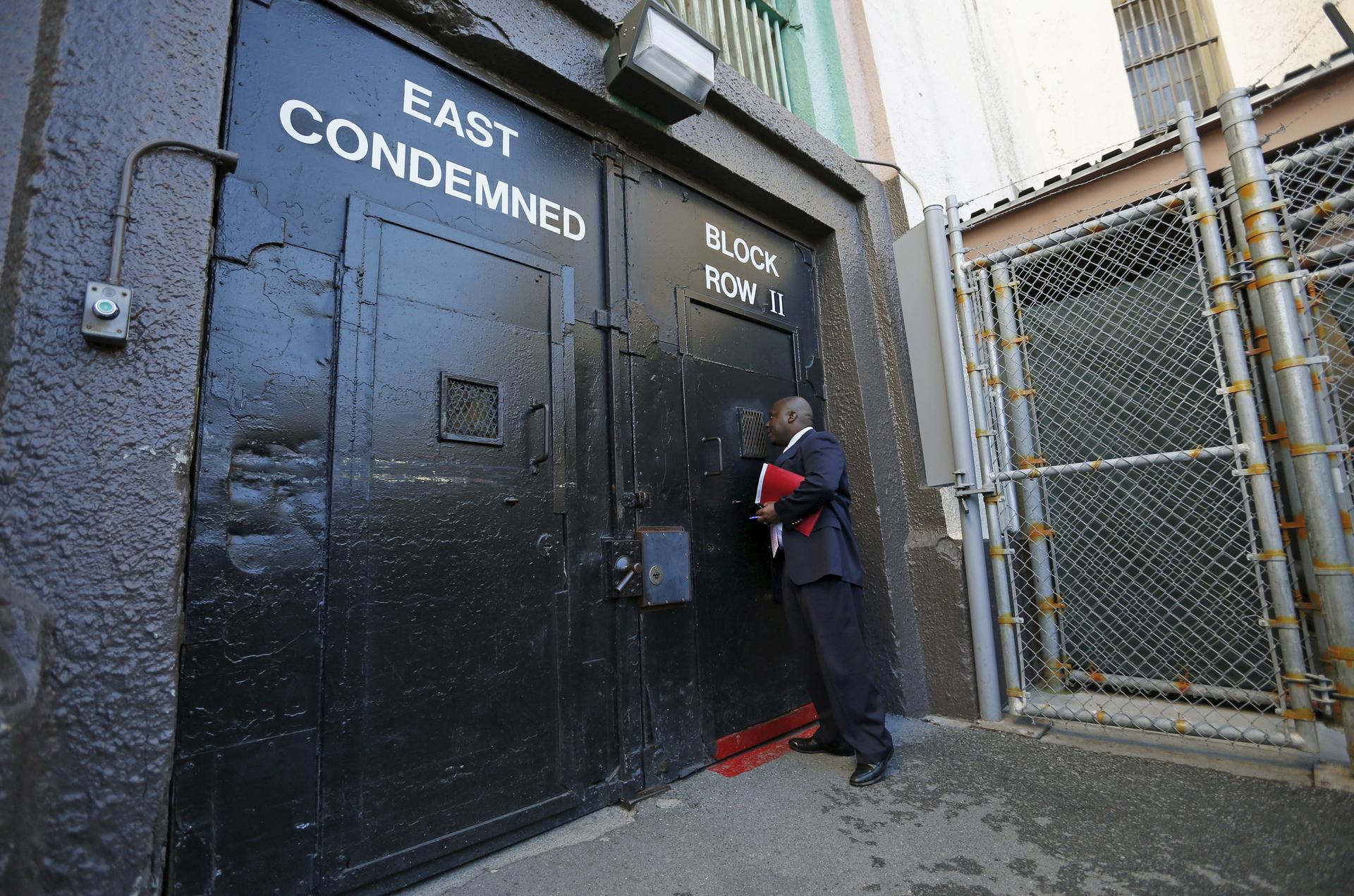In three states, US voters move to reinstate, even accelerate, the death penalty
Lt. Sam Robinson, a public information officer at San Quentin State Prison, knocks on the door to the East Block for condemned prisoners during a media tour of California's Death Row in San Quentin, California, December 29, 2015.
While the death penalty is becoming less used in most nations around the world — just 25 nations executed someone in 2015 — voters in three US states went to the polls this week and demanded their governments keep, re-instate or accelerate executions.
Californians rejected a measure, 54-46, that would have replaced the death penalty with a sentence of life without parole and endorsed a separate measure that seeks to expedite executions. That measure received slightly less than 51 percent of the vote.
Meanwhile, in Nebraska, voters repudiated their legislators who, in 2015, decided to abolish capital punishment and replace it with life without parole. Nebraska’s Republican Governor Pete Ricketts, a millionaire in his own right, personally bankrolled the initiative to reinstate the death penalty after his veto was overruled saying people still supported executions.
And in Oklahoma, which has the highest female incarceration rate in the country and the second highest male incarceration rate, voters made the death penalty part of the state constitution. That comes after the controversial, botched execution of Clayton Lockett in 2014. Lockett was given an untested mixture of drugs that left him writhing and groaning in pain for 43 minutes. The state halted executions after what happened to Lockett — until now.
University of Oklahoma sociologist and professor Susan Sharpe says this surge in support for capital punishment comes down to what she calls "individualism." Sharpe — the author of "Mean Lives, Mean Law," a book detailing the high female incarceration rate — says people don't look at what causes people to commit crimes and have a "lock 'em up and throw away the key attitude."
"We don't look at social conditions and how those impact crime and criminal behavior. If you look at European countries, where there is no death penalty, they also have social service programs far superior to anything we have in this country. They don't condemn people for needing assistance," she adds.
Sharpe says people earning enough money to support themselves getting a good education and access to support, are why people commit crimes in the first place. "We tend to blame those people for needing assistance," she says.
California has 746 people living on death row, while Nebraska has 10 and Oklahoma 48, including one woman. California hasn't executed anyone in a decade, but the new law aims to speed up the appeal process.
While voters seem to be calling for the death penalty, questions remain as to how executions will be carried out. The pharmaceuticals usually used in lethal injections, the most common form of execution in this country in recent years, are now virtually impossible to obtain. The drugs, often a three-drug cocktail, are hard to find because most are made by European countries who have refused to allow their drugs to be used for such purposes.
Major pharmaceutical companies, including the one that makes pentobarbital, a drug often used to euthanize animals don’t want their drugs used in executions. Nonetheless, a single injection of pentobarbital has become the most common method of execution.
Most states have what’s known as an execution secrecy law, which makes it difficult to find out who is making, selling and administering the drugs used in executions. It's become common for states using the death penalty laws to trade drugs used in executions.
Nebraska plans to receive its drugs from Missouri, which uses an independent compounding pharmacy to secure the drugs it needs and has a law that shields the identity of the pharmacy. Oklahoma uses a similar system.
So far, no new executions have been scheduled in any of the three states. Seventeen people have been executed in the US this year, seven in Texas and Georgia, and one each in Missouri, Alabama and Florida.
Every day, reporters and producers at The World are hard at work bringing you human-centered news from across the globe. But we can’t do it without you. We need your support to ensure we can continue this work for another year.
Make a gift today, and you’ll help us unlock a matching gift of $67,000!
